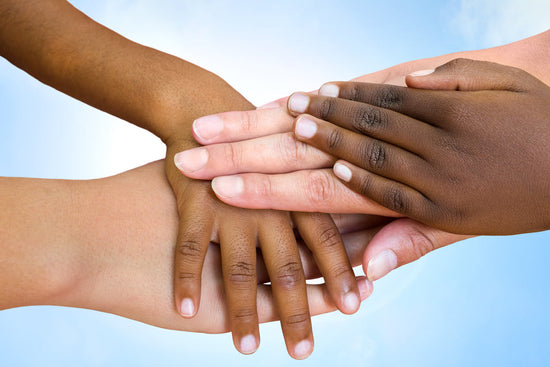Have you ever heard of the term femicide? It is an English term that was developed in 1976 by the sociologist Diane Russell. This topic can be very stressful for some people and that is why we speak of Taynie in this context as a Content or trigger warning for the following blog post. It will cover, among other things, the targeted killing of women, other forms of (partner) violence, such as physical and sexual violence, but also gender-specific claims to ownership and power. We would like to give this important topic a voice with our new blog post and also draw attention to offers where you can get help.
*In the following blog post we are talking about women and men, but of course there are also people who have experienced the violence mentioned, but whose gender does not fit into the binary gender system.
Femicide meaning
The term femicide may already sound familiar to you, as there is gradually increasing media attention around this topic. In short, femicide describes the Killing of women because of their gender. Women have often experienced other forms of violence before the femicide - such as threats, sexual abuse or power inequalities. Although this type of murder is a structural power relationship between men and women, meaning that the man has more dominance over the woman, these cases are often explained as just "individual fates". But if a woman dies every third day in Germany as a result of violence from her (ex-) partner, then we can no longer speak of "individual fates".
You may be wondering why we are talking about murder by the (ex-) partner here: in fact, the most common form of femicide is the murder of the woman by her (ex-) partner. This is because femicide often occurs when the man loses control over the woman, for example due to a separation or divorce. This form of femicide is also known as Intimate femicide in which a woman is killed due to violence in a relationship.
So you can remember this: Femicides are caused by the oppression of women, unequal gender relations and perceived ownership claims towards women and girls in our society.
Find the right Taynie for you.Discover our diversity!
Femicides Germany
Did you know that the German Criminal Code does not contain a definition of femicide? If these crimes occur, they can be classified under other sections of the criminal law in Germany. These are, for example, §211, which describes murder, §212, i.e. manslaughter, and §227, bodily harm resulting in death.
In fact, there is one attempted femicide registered with the police every day in Germany. Another shocking figure is that in Germany a woman becomes the victim of a femicide almost every third day. You can see that femicides also occur in Germany and are a serious problem. But it is not just femicides that are a problem in Germany, but also all other types of violence against women. Because many women avoid going to the police out of fear, it can be assumed that the number of unreported crimes is far higher than the statistics show.
In partnerships, victims of murder, manslaughter or physical assault resulting in death are in most cases women. In Germany, this figure is around 90 percent of all cases women. So that you can imagine the whole thing a little more clearly, we have compiled the following figures from 2021 for you: this year in Germany, 113 women died due to domestic violence. In comparison, the number of men was 14. Domestic violence can affect anyone, regardless of gender. However, the statistics show that most cases involve women.
Femicides in Europe
Have you ever heard of the so-called “silent epidemic” that women are exposed to? Violence against women and femicides can be found in all regions and countries in Europe. To give you a better idea of the effects, we have the following figure for you. EU data has shown that physical or sexual violence affects an astonishing 1 in 3 women - and that from the age of 15! We at Taynie are very shocked by this number. There are actually only 3 EU countries that have made femicide a criminal offence. After Malta and Cyprus have already made this a criminal offence, Croatia is now the third country in the EU to follow suit. If a perpetrator in Croatia is found guilty of femicide, he or she will be sentenced to between 10 and 40 years in prison.
Femicides worldwide
All 11 minutes a woman becomes a victim of femicide. Femicides, which are the most extreme form of violence against women, occur all over the world. Femicides cannot be limited to individual countries or regions. Did you know that 2022 saw the highest number of femicides worldwide in 20 years? The shocking number includes 89,000 Girls and women who have been victims of femicide. Have you heard that Africa has been declared the region with the most femicides in 2022? Before that, it was Asia. 20,000 women were killed in Africa by their partners or family members in 2022. In Asia, the figure was 18,400. After Asia, the Americas are in second place with 7,900 femicides. Europe follows with 2,300 and Oceania with 200 femicides. As you can see, femicides are a global problem, with Africa and Asia leading the way in terms of the number of femicides.
Offers of help
We think it is important to raise awareness of the issue of femicide and gender-based violence as well as domestic violence. So if you are currently in a situation where you are an affected person or a relative, we would like to recommend the following Offers of help recommend:
Helpline “Violence against Women”: This is a counseling service in Germany that can help women who have experienced violence. The number is 08000 116016 and it can be reached every day and at any time. In addition, there is also a Online consultation Not only those affected, but also relatives can get advice there. Did you know that this help is offered completely free of charge? In addition, the conversation can be held anonymously and the phone number does not appear on a telephone bill. The call can also be made in 18 different languages.
Helpline “Violence against men”: As we have already described above, Men are affected by violence and should therefore also receive help. There is also a helpline that can help men who have experienced various types of violence. The number is 0800 1239900. Not only those affected but also relatives can get help here. In addition to telephone advice, there is also a chat function.
Federal Anti-Discrimination Agency: Here you can trans* people get free legal advice. They can also refer you to other counseling centers. The Federal Anti-Discrimination Agency can be reached using a contact form or by email. You can find more information here on the website of the Anti-Discrimination Agency.








